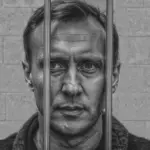March 24, 2024
We hope you enjoy our articles. Please note, we may collect a share of sales or other compensation from the links on this page. Thank you if you use our links, we really appreciate it!
The death of Alexei Navalny, the Russian opposition leader, will have far reaching implications for his homeland and also for the world. While it stifles the voice of democracy in Russia and bolstered Vladimir Putin’s authoritarian regime, in larger terms it shows how antidemocratic forces are on ascendency. While countries like Russia and China are classic examples of authoritarian political systems in which dialogue, debate, and the spirit of ‘agree to disagree’ are not tolerated, the world has in recent years witnessed rise of authoritarian forces. The rise of these forces has pushed leaders of democratic countries to devise innovative ways, often challenging in this age fake media and AI, to uphold values of democracy that had appeared bright on the horizon after the collapse of the Soviet Union.
Political scientist Samuel Huntington argued that the world since the 19th century slowly moved towards democracy. He wrote, “For a century and a half after Tocqueville observed the emergence of modem democracy in America, successive waves of democratization have washed over the shore of dictatorship.” This ‘global democratic revolution’ passed through successive waves, more steadily after the 1970s. He noted, “between 1974 and 1990, at least 30 countries made transitions to democracy, just about doubling the number of democratic governments in the world.” Huntington was not oblivious of authoritarian forces but hoped that ‘skilled and determined leaders at the helm’ would navigate through various challenges to realize democratic goals. The 1990s witnessed more countries joining this global democratic revolution. It appeared the world became safer and democratic values are cherished with the countries like the United States becoming torchbearers of these values.
But as the 1990s moved forward, Huntington’s optimism for a democratic world appeared fraught with challenges. The liberal world order, broadly based on a Kantian vision of democratic peace, in which trade and commerce, international institutions like the United Nations, and republican state structure complement each other towards making the world peaceful was increasingly challenged. Though the end of the Cold War led to the collapse of the Soviet Union and the socialist bloc, and unleashed democratic forces in Eastern Europe and some other parts of the world, it also witnessed rapid rise of intra-state conflicts, authoritarianism in Central Asia and other parts of the world, and governability crisis in the developing world.
It appeared rather that, in contrast to Kantian vision of liberal peace based on an optimistic assessment of human nature and society, Machiavellian ideals, based on a pessimistic assessment of human nature, was on ascendancy. Machiavelli in his classic book The Prince advised the king (equivalent to modern day President or Prime Minister) to adopt all means, fair and foul, to preserve and expand power. He advised the king to be feared than to be loved because “love is preserved by the link of obligation which, owing to the baseness of men, is broken at every opportunity for their advantage; but fear preserves you by a dread of punishment which never fails.”
Authoritarian leaders feed on this fear factor to cling to power. They capitalize on the fear of the people, accentuated by factors such as volatile economy, unemployment, corruption, personality cult, and make a case that only strong leaders like them can address the problems. And particularly in case of Russia, the demise of the Soviet Union and loss of superpower status, have often been harped on by authoritarian leaders like Putin to garner popular support. According to Putin, “the demise of the Soviet Union was the greatest geopolitical catastrophe of the century,” and he is the leader who could restore Russia its lost glory, and in this process, it does not matter if it leads to suppression of democracy and silencing of opposition leaders like Navalny. Such tendencies one could come across in other parts of the world including in the Eastern Europe, which Huntington had counted as an emerging beacon of democracy. Manipulators in authoritarian states point to regular elections and existence of political parties as signs of democracy, but it is common knowledge how democracy is managed in those countries and how peaceful dissent is suppressed.
Authoritarian leaders turn an ostrich eye to the democratic aspirations of their people and do not consult the best minds in their societies as they are surrounded by cliques. Hannah Arendt in her book The Origins of Totalitarianism used the onion metaphor to describe such leaders, who being most radicalized at the inmost layer control from there the outer layers. Authoritarian leaders, as they lack the wider democratic vision, are prone to plunge the neighbors and the world into crises. The recent threat by Putin to use nuclear weapons is an ominous sign of this trend.
(A modified version of this article was published in the Florida Times-Union on March 24, 2024: https://www.jacksonville.com/story/opinion/columns/guest/2024/03/24/russia-china-classic-examples-of-authoritarianism-u-s-must-pay-heed/73016685007/)



